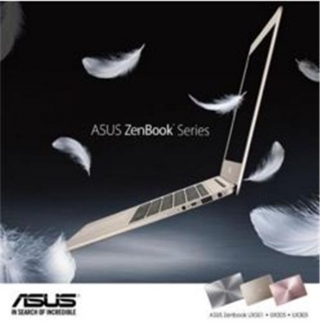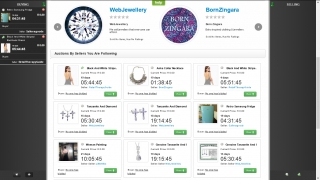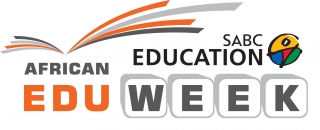Launch of Student Focused Non-Profit Feed a Student on Rainy Days
Launch of Non-Profit Organization Addressing Food Insecurity Amongst Tertiary Students in South Africa
Johannesburg, 10 November 2021 - Non-profit company, Feed a Student on Rainy Days launches its first initiative to address student hunger in South Africa’s universities. Rainy Days SA seeks to raise awareness about the crisis of food insecurity affecting vulnerable students from underprivileged backgrounds.
Rainy Days SA, an initiative of Feed a Student on Rainy Days, is determined to make a difference in the lives of students affected by food insecurity. Food insecurity can be described as the state of having unreliable access to sufficient food.
The charity organization is run by sisters, Lolo Ntshiqa and Asanda Ntshiqa, whose humble beginnings are similar to the realities faced by many Black South African students. “Our parents fought against all odds to ensure we received quality education from institutions they could only dream of attending,” said Asanda, “Who knows what kind of life we would have had, had it not been for the sacrifices they made?”
Government programs, like the National Student Financial Aid Scheme (NSFAS), which provides financial aid to underprivileged students, has opened doors for more young people from underprivileged backgrounds to attend institutions of higher learning. However, many of these students continue to face challenges, such as food insecurity, throughout the course of completing their diplomas or degrees.
According to Lolo Ntshiqa, the impact of student hunger can influence students’ academic success. “When a student is hungry, all they can think about is where their next meal will come from. In class, they may be absent-minded or suffer from brain fog due to the low energy they are running on. Not having access to a basic human need, such as food, can also lead to poor mental health, causing students to skip classes or drop out of university.”
Rainy Days SA is on a mission to raise awareness around the issue of food insecurity, particularly on how it affects students. The organization calls upon students, alumni, public institutions, and businesses to join the movement and assist in finding practical solutions for providing low-cost, nutritious, and affordable food packages to vulnerable students.
You can support the charity by visiting their website, www.rainydayssa.org and making a financial contribution, from as little as R10, which will go toward raising funds for student food packages. If you have a social media account, you can support the cause by following the organization’s social media pages and joining the conversations. On Instagram and Twitter (rainydays_sa) and Facebook and LinkedIn (Rainy Days SA).
To partner with Feed a Student on Rainy Days, or for any further inquiries, please send an email to This email address is being protected from spambots. You need JavaScript enabled to view it..
About Rainy Days SA
Rainy Days SA is dedicated to feeding South Africa’s tertiary students who are faced with food insecurity, and protecting their dignity. We hope to receive the support of the youth, corporate organizations, and local government to raise awareness on the food insecurity crisis, and provide low-cost grocery package solutions.
Meet the sisters behind Rainy Days SA: https://www.youtube.com/watch?v=othehXiRE8Q
Media Contact
Lolo Ntshiqa
Email: This email address is being protected from spambots. You need JavaScript enabled to view it.
Website: www.rainydayssa.org
Bringing the Students On Board
The Student Development project launched by SACIA in 2019 is already bearing fruit. Mpho Buntse was contracted in early 2019 to manage youth engagement within SACIA, in line with the Association’s vision of addressing the succession and skills shortage issues we experience in the Technical Communications industries. As the Project Manager for Youth Development; Mpho is the liaison point between higher learning institution stakeholders (students, academics and support units like student affairs), and the Association, to launch active chapters within all institutions relevant to the broadcast, film, media, sound, AV and live events sectors.
His role includes all youth engagement aspects of the association, including setting up a Young Professional’s Forum, driving and facilitating networks, community engagement, raising awareness amongst students about the professional designation opportunities available to members and instilling ethical as well as professional conduct amongst youth members.
The initiative is forging ahead with the establishment of on-campus Student Chapters. There are already Chapters on-site at six major Training Institutions around the country, namely: The North West University (Mafikeng Campus), the North West University (Vaal Campus), The Academy of Sound Engineering, AFDA, The University of the Witwatersrand and the University of Johannesburg; with more planned as the platform expands.
The aim is to gain input from these academic institutions and integrate with their offerings to provide the practical components (today commonly known as service learning programme) that make for well-rounded, employable industry-entrants. “Although we only started the process of engaging institutions about 3 months into the 2019 academic year, we have received overwhelming interest from both institutions and students," says Mpho.
“Students within the scope of SACIA’s mandate have demonstrated an eagerness to facilitate a single, non-partisan voice that will see them flourish as ethical professionals, post-graduation. There is a sense of relief that, finally, their sector has a professional body represented by a force of intergenerational, experienced role players, highlighting ethical standards.”
A Youth Development Day at Blandford Manor in April, which hosted champions of the initiative and students from partner institutions, uncovered a healthy appetite for technical development and set the stage for further engagement. As well as being the official launch of the Student Council, the day created opportunities for young people driving transformation in the industry to interact, share challenges faced by the youth and make recommendations on how to advance youth engagement.
It also gave chapter leaders the chance to meet, greet and network with some of the members and board of SACIA. SACIA’s student development plan operates in two ways. The Association, through the Student Chapters, facilitates the placement of Broadcast, Live Event, AV, Media, Film and TV student members with relevant industry players for their Work-Integrated Learning/Service Learning Component while they are still studying, so that the theoretical elements come to fruition on site. It also provides for engagement with industry, opportunities for mentorship arrangements, internship potential and future preferred employment opportunities.
The outcome will be an industry-backed student population, receiving practical support from industry leaders and graduates that are work-ready with access to industry networks. These students can interact with major players and form networks necessary for future partnerships. It gives them access to Mentorship, Work-Integrated Learning, Service Learning and Internship opportunities as well as the chance to hone their leadership skills to contribute towards the vision of the industry.
To make this benefit accessible to this section of the market, SACIA has discounted the Student Council membership fee to R100.00 (ex vat) per annum for Student Members. Already the Academy of Sound Engineering has registered their entire complement of Final Year students as SACIA Student Members, at no cost to the students. Mr. George Hattingh Junior, Director of Marketing and Communications for Academy of Sound Engineering (ASE) provides SACIA with the resources they need to make an impact within the student body.
“ASE is the largest training institution for Audio Technicians and Sound Engineers in South Africa and produces technicians in the Television and Screen Arts field. Our impact on the industry is significant and must form part of the professionalisation of the industry, so we welcome the opportunity to engage with SACIA at this level.” “Although it is still early days, our students have begun talking about the programme and are excited at their prospects.
The realisation that they are part of something bigger than just an institution and that the industry’s professional body recognises them and offers the space for growth and support, is invaluable,” he says.“We are also excited about the possibility of our professional staff to be involved and to gain their professional designations. As SACIA grows and its relevance and impact in our industry becomes more important, we hope to be a part of that successful growth.”
The Student Council anticipates tremendous growth in youth-oriented membership and the development of a SACIA membership that reflects the demographics of the country as well as the changing face of the sector. “We aim to have launched 50% of our national chapters within the first 5 years and to have obtained a clear mandate from the student and youth population about the future of the industry” says Mpho.
“By the end of 2019, we anticipate a fully-fledged Student Council and Young Professional’s Forum as strong components of SACIA. We are at the centre of the fourth industrial revolution, and we need to demonstrate our commitment to addressing the changing face of our future workforce by investing in the youth.”
Free Study Hacks Book for all Students in South Africa
Durban, South Africa - Presto, a youth-owned business, has an app which provides access to study guides written by the top performing students in South Africa. To celebrate Youth Day, for two days only, Presto is giving away their study hacks guide for free (worth R100) to all learners in South Africa.
This book is packed with the best study strategies by the top performing students in South Africa, including a Rhodes Scholar and a learner who came first for Matric in 2012.
“We believe that this guide can improve the marks for all learners in SA”, says Shivad Singh, the 24-year-old founder and CEO of Presto, a youth-owned business. Youth day commemorates the role of the youth who fought against the Apartheid regime. Just like how the Soweto Uprising laid the grounds for the release of Nelson Mandela and the end of the Apartheid Era, we hope that by Presto giving their study hacks book to all South African learners for free, it will pave the way for an improvement in learners’ marks, leading to a rise in the standards of education across the country.
This campaign is one of the first steps in Presto’s mission to improve education in South Africa.
“Every child has the capacity to be a genius”, says Singh. “We want to unlock that potential in as many learners as possible in South Africa and then the rest of Africa.”
To access the study hacks books, simply download the Presto Books app by searching “Presto Books” in the app store. Once the app is downloaded, click on “Study Hacks” book to get your free guide for you or your child. About Presto Books (Pty) Ltd: Presto Books is a youth-owned company that gets the top performing students in South Africa to create educational material to benefit their peers.
The content is available through their online website and Android and IOS app. Presto is a subsidiary of Head Start Education, a company which serves as the Gateway to Africa for the leading education technology companies in the world, in order to lead the advancement of education across the continent.
What's On your Plate highlights student innovation this Youth Month
As South Africa gears up to celebrate Youth Month, What’s on Your Plate is determined to give a voice to the youth passionate about making a difference in South Africa. In this innovative competition, students are invited to share their big ideas, while cooking up their favourite fare.
Using a digital cooking platform, What’s on Your Plate is an online cookout competition that challenges students to cook a meal using the “student, fridge and pantry” all while sharing their innovative and positive solutions to SA's problems.
The competition is about using food and cooking as a platform to create meaningful conversations around transforming SA. It is about enabling ideas that can shape South Africa and change the negative narrative into a positive solution.
"We are aligning the campaign with Youth Month as we commend SA's future leaders. Creating a platform for the youth to drive the ideas that can shape and transform SA's problems to solutions, is an opportunity to empower the youth' explains JT Comms Marketing Manager Isabel Tapfumaneyi.
“Entrepreneurship is about creating opportunities and, as we learnt in the Fees Must Fall campaign, students need to be able to create their own economies. The lack of finances affects students’ ability to sustain themselves and by linking entrepreneurship to youth education we are determined to be part of a solution,” added Tapfumaneyi.
What’s on Your Plate invites corporates and businesses to partner with them in creating platforms of empowerment and supporting tomorrow's leaders today.
The show will be recorded in a 12 part series profiling 12 student innovators chosen from a national entry submission.
Students can enter by:
- Submitting a 30 second video presenting a teaser of their innovative idea on Facebook, Instagram, Twitter or Whatsapp
- Entrants will be required to tag BunniesInTheBurbs on all social media platforms using the hashtags
- #BunniesInTheBurbs
- #WhatsOnYourPlate
- 3 finalists will be selected based on best dish and best idea.
- At the grand finale cookout one winner will be chosen based on the best idea and dish.
- The winner will get R50k worth of prizes
What’s On Your Plate will be available on various platforms:
Youtube Channel JT Comms
- TVjtcomms.co.za/my-product/bunnies-in-the-burbs-bibsbunniesintheburbs.wordpress.com/
About JT Communication Solutions
JT Communication Solutions is a dynamic 21st century PR, Media, Communication and Marketing agency rooted in Africa, with a global reach. The agency is strategically positioned as a link to scale businesses using the media to tell their story.
About Bunnies in the Burbs
Bunnies in the Burbs is an initiative by JT Communication Solutions launched in August 2016. It is a media digital cooking show about culture, cuisine and conversations and advancing the positive African narrative
Watch ‘Bunnies in the ‘Burbs’
- https://www.youtube.com/channel/UCb5qV6sIqZzawxJ9l8KtNTQ/videos
- Instagram - @bunniesintheburbs
- Youtube - @JT-TV or https://www.youtube.com/channel/UCb5qV6sIqZzawxJ9l8KtNTQ/videos
- Facebook - https://www.facebook.com/Bunnies-in-the-Burbs-479330615526448/
- Twitter - @Bunnies_Burbs and #BunniesInTheBurbs
For media queries, interview requests, access to high res images etc please contact JT Comms on This email address is being protected from spambots. You need JavaScript enabled to view it. or 011 788 7632.Issued by JT Communication Solutions on behalf of Bunnies in the Burbs
Why Laptops are the Perfect Study Companions
Powerful, Portable and Connected
Laptops are an essential item for students today who use them as an integral part of their studies, in lectures and for collaboration.
According to research done by the Pew Internet Project in America, close on 90% of students in universities and colleges have laptops and 100% use the Internet.
The University of Michigan’s Centre for Research on Learning and Teaching concludes from research done that laptops have a positive learning effect when teachers use them in an intentional manner, such as for Internet research, presentations and shared resources.
Nursing student, Rachelle Macaulay, says that she takes her laptop to class to follow her lecturers’ slides and course-related Internet videos.
Most universities have Intranets for the students and lecturers to share information.
Kendra Hudson, a Sport Science student at the University of Stellenbosch, said that students have laptops because they need to get information from their departmental Intranet pages which their lecturers post online for them. The university has computer rooms, but not many people use them, preferring to use their laptops at home or in their residence rooms.
Considering the important role laptops play in a student’s life, what are the core criteria to look at when buying one?
Portability
The first check-list item is laptops need to be light and portable if they are to be taken to class. Recently, there has been a move towards ultrabooks - laptops which are small and light yet are strong and powerful. Jimmy Gumede, from the Wits University Computer and Networks Service Desk, said that the major benefit students get from an ultrabook is portability.
Screen Size and Resolution
A 13,3 inch screen is a good size to take to lectures: not too small, but big enough to view spreadsheets and documents, and it should have a resolution of at least 1920 x 1080 to give you an ultra-crisp display.
Robustness
Durability is another important factor, especially if you are carrying your laptop around with you. In this regard, a metal body is preferable to a plastic one.
Battery Life
On campus, students do not always have access to a power outlet, and cables can be a hassle, so battery life is a crucial consideration.
Performance and Specs
It’s no good buying a laptop that is small and robust, but doesn’t get the job done. Performance is important and the laptop has to be fast enough not to frustrate you or hinder your work. The processing power needs to match your uses. Matthew Spring, recent Civil Engineering graduate of the Cape Peninsula University of Technology, said that he looked for a laptop that would be able to run the programmes they used in their course. According to the University of Stellenbosch’s student computer helpline, a processing power equivalent of at least the Intel i3 would be recommended. As far as memory goes, 4GB to 8GB RAM, and storage from 128GB upwards is ample. Kendra Hudson said, “When I bought my laptop, I looked for one that has lots of memory, knowing that I’d have many essays to do and notes to save.”
Longevity
Longevity is something to keep in mind. It is worth paying extra to get a laptop which goes the distance of a four-year course. Matthew Spring said that when looking for a laptop to buy as a student, “I mainly looked for a laptop that would be able to last.” Taking these criteria into consideration, students would be advised to look at the ASUS ZenBooks which more than just cover these bases and are becoming a popular choice for students. They are slim and lightweight with a solid aluminium build. Their battery life is a competitive 10 hours, and their other specs put them in the category of powerful, fast and stylish laptops. Based on information obtained from GFK (Gesellschaft für Konsumforschung, Germany's largest market research institute), the ASUS ZenBooks are number one in the world market for ultra-slim 13 inch Windows laptops. In a review, Trustedreview.com said, “The level of build, display and battery life are unparalleled - this would be a super ultrabook for any student.”
About ASUS
ASUS, is a worldwide top-three consumer notebook vendor and maker of the world’s best-selling, most award-winning motherboards. A leading enterprise in the new digital era, ASUS designs and manufactures products that perfectly meet the needs of today’s digital home and office, with a broad portfolio that includes motherboards, graphics cards, optical drives, displays, desktop and all-in-one PCs, notebooks, netbooks, servers, multimedia devices, wireless solutions, networking devices, tablets, smartphones and wearables. Driven by innovation and committed to quality, ASUS Won 4368 Awards in 2015 and is widely credited with revolutionizing the PC industry with its Eee PC™.
NOTES TO EDITORS
ASUS Global Press Room: http://press.asus.com
ASUS South Africa Facebook: https://www.facebook.com/ASUSza/
ASUS South Africa Twitter: https://twitter.com/ASUS_za
Online Buying and Selling Reinvented
SOUTH AFRICA – Jan, 2015 – After much anticipation LiveBids Auctions has been launched in South Africa. LiveBids offers a unique online buying and selling platform that incorporates different aspects of various social media.
This means that a choice of interests, following friend’s, search hundreds of products while buying items for a fraction of the cost and selling them to make real profits.
LiveBids aims to help buyers and sellers fully connect in trade with seamless transactions. It is an online marketplace that is simple, interactive and social. It allows users to experience a real-time marketplace, buy products lower than the market value and socially follow buyers and sellers.
Two formats are used, namely online auctions and pay-per-bid. The first of these is the traditional online auction model, where items are sold to the highest bidder. The second is a pay-per-bid model, where would-be buyers purchase credits to bid on items. These credits go to the seller, which is how it is possible to purchase big-ticket items for nominal amounts.
The founders of LiveBids, Rory Vollmer and Paul Hoft, explain that “the idea was to create an online marketplace that was simple, interactive and social, helping buyers and sellers connect and trade. The marketplace is completely people driven”.
Visit www.livebids.co.za to empower yourself by becoming an online buyer and seller today!
For further information regarding LiveBids Auctions, or to schedule an interview, please contact:
Contact Rory Vollmer,
Co-Founder and Head of Marketing
Phone: +27 (0) 21 300 8446
Email: This email address is being protected from spambots. You need JavaScript enabled to view it.
Website: www.livebids.co.za
Regmerk.co.za launches new mathematics website
Regmerk.co.za launches new mathematics website with free worksheets and assessments for teachers, learners and their parents.
Regmerk.co.za is a new Mathematics resources site for Afrikaans speaking learners in the senior phase. We give educators, parents and learners access to our growing knowledge base, which includes free assessments, useful articles and fun ways that learners can use to improve their marks.
Lourens Breytenbach, owner of Regmerk.co.za, says “If you do an online search for mathematics worksheets, assessments and summaries in Afrikaans, you will find that there is a constant and growing need for these resources.”
Visitors can download a free e-book with more than 50 pages filled with colourful articles, fun assessment questions and a printable collection of worksheets and summaries.
Here’s what you will find in our FREE e-book:
- 20 questions to see how “clever” you are
- Find out how you can improve your maths marks without studying more
- 10 Mistakes parents make
- 20 worksheets filled with printable exercises and summaries
Regmerk.co.za is a brand new project and promises to provide tons of useful maths resources for learners in the senior phase. Visit: www.regmerk.co.za and download the free e-book to learn more.
Neurologist turned teacher to explain “aha moment” at African EduWeek in July
Conference and expo to provide practical and relevant support to teachers
A neurologist who became a classroom teacher will explain how best to stimulate young people’s brains to process information into knowledge and wisdom during the upcoming SABC Education African EduWeek in Johannesburg in July.
Thousands of teachers and education experts will attend the annual conference and expo from 10-11 July at the Sandton Convention Centre for an interactive gathering that will empower them through technology, skills and interaction with their peers.
One of the African EduWeek keynote speakers in the opening session is Dr Judy Willis, a board-certified neurologist in California, who left her practice after 15 years to become a teacher. At the time she says there was a marked increase of children being referred to her with suspected neurological conditions, and she discovered that this was due to the vast amount of material that students had to learn at school.
Dr Willis explains: “I realised that these stresses of frustration and boredom had wiped out the joy of learning and kids were unable to be engaged in learning through curiosity, but instead by drill and forced memorization. I felt that this was something I could make a difference in and influence a better way of teaching.”
She continues: “I believed that because as a neurologist I had a strong background in things like memory and how the brain processes information, I felt that if I had the opportunity to become a classroom teacher and receive the training, I could take what I know in neuroscience and see if it worked with students in the classroom and that’s what I did.”
Having ideas coming together in ‘aha moment’
Dr Willis taught for ten years to 2nd grade, 5th grade and 7th grade mathematics. “During this time I was delighted by the power of neuroscience to shine a light and suggest strategies from education that would be most correlated with the neuroscience research that was increasing in quantity and with more specificity, thanks to neuro-imaging. So as I found correlations between strategies and neuroscience research that guided me to apply certain strategies at different intervals depending on what the brain responded to best.”
She eventually gave up teaching children, reluctantly, but today enjoys sharing her insights with fellow educators. “I have always loved watching learners experience the thrill of developing their own knowledge, of discovering, of capturing the meaning of something, of having ideas come together in an ‘aha moment’. That same joy is my greatest pleasure in teaching other educators now. It’s seeing the ‘aha moment’ when they realize that their best strategies, things that have been most successful, are indeed highly supported by the neuroscience research. It is not that neuroscience is suggesting a whole new way of teaching, but the excitement to me is when educators recognize the “why”.
Read and hear the full interview with Dr Judy Willis as part of the African EduWeek expert interview series on www.educationweek.co.za/interviews
More African EduWeek opening session highlights:
Chairman: Graeme Bloch, Independent Education Specialist
• African Education Update: Is Africa’s education potential beyond the Millennium Development Goals being met?
Panel of experts includes:
o Edem Adubra, Chief of Section, International Taskforce on Teachers, UNESCO, France
o Prof. Rehabeam Auala, Professor of Educational Management and Leadership, University of Namibia, Namibia
o Marius Ehrenreich, President, South Africa Principles Association, South Africa
• Breaking boundaries and reaching your full potential
Sheri Brynard, Teacher, South Africa – first person with Downs syndrome to qualify as a teacher
African EduWeek dates and location:
Expo and conference: 10-11 July
Pre-conference: 9 July 2014
Venue: Sandton Convention Centre, Johannesburg, South Africa
Website: www.educationweek.co.za
Twitter: https://twitter.com/education_week
Contact:
Communications manager: Annemarie Roodbol
Telephone : +27 21 700 3558
Mobile: +27 82 562 7844
Email: This email address is being protected from spambots. You need JavaScript enabled to view it.








